|
This is the final conversation in a very full day, covered by the two posts immediately below.
You may remember Sho Luv, from the 358. He looks like a friendlier version of Ice Cube, with more gold in his teeth. Always in bright spirits, at least when I'm around. We're both from South Gate. He's explaining how he was just down in Los Angeles. A flood in a living space he was visiting there had resulted in problems. "I was down on Skid Row for five days and five nights." "Skid Row, uh oh!" Like our Jungle, Skid Row has housed a large homeless population since before the 1930s. "Went down there for a high school reunion." "In Skid Row??" He bellowed with laughter. "Naw, silly! In LA! Ah found a hotel, finally. The sign said sixty dollars, I said okay." "Okay, reasonable." "I gave the lady a hunnerd dollar bill, and she gave me twenty-seven dollars back!" "Hold up!" "I know! It's a problem with the arithmetic!" "Totally! My math ain't perfect, but it ain't that bad!" "Somethin' don't EQUATE!" He continued his story after we caught our breath. "I was down there five days in Old Town, man, and you know there ain't no cabs goin' into Old Town," "No way," "So I'm walkin' across MacArthur Park in a two piece suit!" We're both screaming. "What? You did what?!" "So then I was late to the dance, finally got there felt like I had climbed Everest or somethin'," "I know you like to hit them clubs," "Aw naw, no more clubbin' for me." "Right on." "Anyways I got there with an hour left, and they still tried to charge me full price! He was askin' me for eighty!" "Fuhgetaboutit!" "I said I'm givin' you forty, and if we need to talk about it we'll talk about it!" "That work out okay?" "Yeah, but check this. Inside, at the reunion, a lady asked me, 'are you a pimp?'" "What?" "I said, 'I don't need no ho to make my dough!'" I suppose that's one way to express one's interest in legitimate careers. "There you go. She just asked you out the blue, straight up?" "Yeah!" "That's weird, man." I assured him that he did not in fact resemble a pimp, though pimps have been known to traverse MacArthur Park in the wee hours. "I mean I'm just sayin', Mister Sho Luv, I see somebody walkin' 'round Skid Row in the middle of the night in a two-piece, the word 'pimp' is gonna cross my mind! I mean I miiiight think this guy's goin' to a high school reunion 'cause his spot got flooded and no cabs drive through here and Skid Row is in between his flooded hotel and his reunion spot, buuuuttt…." Our cackling, deep-throated joy was the light we made for ourselves, and each other.
4 Comments
This story is a continuation of the same day as the post below.
It's only a few minutes of faces I don't recognize, and then we have Andrew. Andrew's on his way to practice mountain climbing. Albert, whose name I won't know 'til the end of the trip, keeps butting in with tidbits on football and weather, but that's okay. Andrew's a young man with a job; Albert's an older man without one. They respect each other anyway. I met Andrew on a recent break, as I was eating dinner in the middle of the bus with all doors open, gabbing away at someone else. He and I are just getting into our recurring mountain climbing discussion when a young lady I recognize steps aboard. It's Celia. I'm bubbling over. I distractedly yell hello at some Pioneer Square regulars walking by– bus driving is nothing if not multitasking– after which the three of us carry on our big reunion. Celia is one of those bright, happy faces upon which you see the best of life writ large, a reminder of the good things we so easily know on our better days (you may recall her from here, wrapping up the night here, talking tough stuff here, or especially here). We three fill the air with enthusiastic music, using rock climbing, Amazon, and corporate bureaucracy as starting points. We somehow manage to laugh about rising house prices, of which we are all victim, and together hope we don't have to move to Renton to stay near this glorious city. I comment on something I noticed in Los Angeles– when the minimum-wage working class is priced out to the point it has to own cars, you've just lost the functionality of the city. Andrew leaves, and Celia and I soar ever higher. The conversation on this little bus is our great construction for the day, our living art piece. We zig-zag between cars and bounce ideas, emotions, memories off each other. People around us smile. A sampling of our lineup: telling each other our separate Y2K experiences; politics at the Center School; politics at Columbia City Bakery; how age disparities recede with age; declining notions of coolness; how this is the time for our generation to shine and assert itself as something other than "millennial" (a term I abhor! I was born in the eighties, for heaven's sake!); ways of routing the 7 over to light rail that would still include the Prentice loop; how well Goethe's letters hold up through the centuries. Do these details matter? I want you to know what it was to be there, as we turned Tuesday afternoon into something glorious, rich with the benevolent surge of excited life, how we built that grace out of nothing more than banalities. And they say there's no magic in the world! I think you know the feeling, friend, where you and your conversation-mate spar back and forth with joy, well-oiled and symphonic, English being the music of the street. She leaves us for now, but the wheels keep turning. Rory, a vet and father, tells me of his recently deceased relative, how he used to sell tires, how his sister's doing. These are the essential matters on his plate and the center of his day; I'm here to listen, partly mind-boggled at the density of human experience on this universe. His world is just as big as Celia's, yet features none of the same highlights. How is there room for all this on our tiny globe? Everyone, with their urgent dreams and sorrows, hardly known by those right next to them. No wonder people always have something to say. After him there was Kathy, or Katherine, or somesuch, with her own highs and lows: her last day working at PCC before gearing up for classes at Seattle Central. We talked western philosophy, how a bus system that forces transfers has an inadequate understanding of people's travel patterns, and the brilliance of the connected 7/49 routing. Another man and I expounded on how we love the older coach types– the Americanas, this Breda we were driving, and the German M.A.N. coaches which preceded it. The bus would've blushed furiously were it able to hear our unabashed praise. Some exchanges are short: A man named Al tells me I should be an airline pilot. That's all. Others are long. Here's Ahmed, fresh from a long day working at Taylor Shellfish. We have a real discussion. He's about my age, and as gregarious. The topics reel in and out of our flywheel, and we're able to discuss matters more personal, more complex as the bus thins out– getting on in the evening now. Girls, restaurants, business strategy, chicken, relationships, divorce, kids, the value of creativity in one's life perspective, nurturing a creative environment for children, being kind, honesty, finding peace and respect in divorce- "no reason to hate," he says, referring to his ex-wife. "Exactly. She's not all bad. There was a reason you got together." "Exactly!" The last lines stuck. No relationship is a failure just because it ends. Everything ends. The trick is enjoying it, right now. His was a conversation you hang onto, or try to, as it flits into the ether, fading away already, living on only in your memory, and hopefully your actions. There are dialogues where you walk away a better person. That doesn't exactly describe the next conversation, which unlike the rest I was able to jot down, not because it was profound (it definitely wasn't!), but just because it happened to be the last one in this long, exhilarating four-hour string of Nathanbabble.... To be continued– check back soon! Pretty early on I realized, there's no way I'm going to remember all this. The most I can do is throw my hands in the air and just enjoy it.
I've written before about my great fascination with spoken language, and how I love capturing its nuances and specifics. The starts and restarts, the repetition, the interruptions– quite different from much fictional dialogue, wherein characters patiently wait for each other to finish talking and express complete thoughts in organized, structured bursts of brilliance. The linguistic enthusiasts among you will perhaps know that the Nixon tapes are the largest existing document of the same people talking. Think about that for a moment. It's a dialectic gold mine. The resulting transcripts are invaluable examples of what spoken interactions actually look like on paper. The recent 800-page brick of a publication, The Nixon Tapes, culled from 3,000 hours of backroom dealings and private conversations, focuses mostly on early-term material (we've all heard the Watergate tapes). Aside from the obvious historical value and disturbing Shakespearean undertones– perhaps overtones is more like it– the transcripts are revelatory in their unadorned depiction of human speech. You realize people don't talk in paragraphs, let alone complete sentences. Page after page goes by of oddly rhythmic, staccato interruptions and roundabout developments of thoughts, like intercutting storyline threads in a Robert Altman movie. Read here as Nixon, John Connally, and other cronies discuss bribing dairy farmers. The subject only comes to light glancingly, gradually, a sum revealed only by taking it all in. It's a beautiful dance of sorts, the type we all engage in every day. It is this fascination which compels me to document so many bus conversations in such detail. People reveal volumes of themselves in how they choose to phrase things, and how thoughts come to light through a progression of two people interacting. I aim to capture the dialogue of the bus conversations with as much accuracy as possible. I'll scribble down down everything on transfers or paper towels as soon as it's safe to do so. I can fill in context later; at the outset all I care about is getting down the actual words. Keywords come first, quickly followed by word choice and structural details. When you do this enough times, your recall develops and remembering the idiosyncrasies of speech becomes an ingrained habit. Generally I start with the last (most recent) sentence of an exchange and work my way back through the conversation from there. However, I can't get it all down every time. Many's the time when the conversation was so compelling– but so fast– that retaining it all was simply impossible. I'd sit there at a red light, thinking, what just happened? If I can't remember a conversation with confidence, it doesn't go on the blog. After all, if it isn't truthful, what's the point of telling it? Today was one of those days. Over the course of a seven-hour shift, at least four hours were spent talking with friends. It was a cavalcade, a hit parade, a stream of delighted faces. Usually I see a few people I recognize, but never in such an all-at-once overload. While I don't remember the words themselves– almost immediately I realized that would be an absurd task– perhaps that's not what matters so much as the feeling, the living reality of it all. Of course. In the same way the act of photography takes us out of the present, so too does the conscious effort to memorize and document words. I wonder if I was more there, more unwaveringly present as a result. I'm grateful for having gotten to experience any of it at all. It began with Paul and I gabbing away at my first break. It's about to be The Great Paul's last round trip of the 7 for the day (read here for how Paul and I celebrate New Years'; here for a humbling moment on Paul's bus). It'll be my first, following right behind him. Maybe you know him. Picture a beard which manages to combine Duck Dynasty, the best 'fros on Rainier, and Charlton Heston's take on Moses. He's one of those men who's exceptionally good at what he does, but not because it's his only interest; his curiosity and capability for life are such he'd be good at anything he chose to do. This is more rare than it sounds. Today's his last day before heading to New York with family to take down an art installation. We talk about last days, road trips, weight loss on trips, his son, the Badlands and more. We're off– two 7's in a row with drivers very happy to be there. He drives his bus while drinking coffee out of a ceramic mug– that is to say, in style. That's just the beginning– to be continued shortly! I think he works at the bar down the street. A young man, perhaps mid-twenties, though his tattoos suggest the weight of history. The sharp edges and work boots are offset, however, by his clean, bright smile. The boyish look that never faded, deep brown eyes against olive skin, framed by stringy shoulder length black hair, the kind that blows in the wind on the cover of a romance novel.
"How was work?" I asked. "Work was awesome!" I wasn't expecting such an exclamation, especially at this God-forsaken hour at the bottom of Rainier Valley. "Wow, " I said. "Nice!" I was about to add, I wish everybody said it like that, when his enthusiasm tumbled out again: "It was so great! Got to work with my crush." "Oh yeah?" "Yeah, she started there two weeks ago, and OH MAN! She's so much fun!" I couldn't help grinning. "That's such a great feeling! Makes the night fly by!" "Oh yeah!" "You know it's funny," I confessed. "I got a similar thing goin' on right now, where I just met somebody, an' I dunno if it'll turn into anything, but man, it feels good!" "Totally, that glow!" Usually I'm the one who uses that word. It's nice to hear it coming from him. I said, "yeah, that amazing buzz of good feeling you get. I could ride that buzz for a whole day." "Me too!" "And even if it doesn't turn into anything, that's not even..." "Yeah yeah," "It's still just that great good wave of good energy. Brings out the best in us." "For sure." I don't want to situate this in time, or reveal whether it happened last night or five years ago. Let it represent every moment that perfect glow has taken hold, regardless of what joy or heartache came after; for the feeling was still true and good, in the early days before we knew the end of the story. It is still worth celebrating. That fluttering, the sensation of walking on air, the gentle surprise, in spite of all that came before, that you can still feel. Do you remember it? Don't you love how it felt? It all started somewhere northbound on Tenth Avenue East, as we drifted past Saint Mark's Cathedral. There's never any traffic here, but there was tonight. Whirling lights flashing up ahead, passersby on the sidewalk with cradled arms, hands on hips. We, in the bus, had just driven all the way up from Rainier Valley, and were in the home stretch, through residential north Capitol HIll on our way to the U District terminal.
This is normally the easy part. Police cruisers in the distance inched forward. What with the long line of cars and three other 49's in front of me, I couldn't make out what was happening. It took forever for me to realize it was a protest. Of course. But what were they doing out here in the 'burbs? People protest on Broadway, or downtown, not Tenth avenue. There's nothing out here but houses, and all the lights were turned out. These poor protesters were their own audience. Eventually, after six of us 49's– a staggering hour and a half's worth of bus service stacked up in the same place– got locked in a standstill amongst an endless line of cars, the protesters' plan began to emerge. By now we had spilled out of our parked vehicles and were standing in the street chatting. We were in the quiet realm, a good half-mile away from the action, living in the charged calm that lies on the peripheries of an event. Passengers fell asleep or else abandoned ship, choosing to walk. We began learning this was a Black Lives Matter protest on its way to the Mayor's home– hence the reason for masses of people blocking roadways in unconcerned sleepy residential neighborhoods. I've written before on the disconnect between protestors and the groups of people those protesters are supporting. The dichotomy is never more apparent than during Black Lives Matter protests. To explain: For the lion's share of this protest's routing, it blocked and completely destroyed service on only one bus route– the single most essential conduit to the black neighborhoods in south Seattle, the 7/49. The irony of this couldn't be overstated. We laughed, unable to take the protest seriously despite its excellent and honorable intentions. They could've easily avoided this by protesting during the day, when the routes aren't linked. It's called a little bit of research, guys, we quipped to each other, giggling. Ruining bus service for black people in transit-dependent neighborhoods is proooooobably not what they were hoping to accomplish…. but buku brownie points for having their hearts in the right place! After about 90 to 120 minutes of delays, depending on which of those six buses we're talking about, we all finally made it to the U District. The coordinator was slammed with a high-level accident in Ballard, and couldn't get back to us to direct us on how to return to schedule. Running all six buses in a row back to Rainier Beach would be pointless. We decided to improvise. I like to think we did a bang-up job of using our initiative and spreading the service out. A couple of us worked on the 49 part of the route for the time being, while another drove the full ordinary routing of the 49/7 through downtown; myself and one other operator expressed ourselves to the south end to serve Rainier Valley as quickly as possible. He would fly all the way down to the bottom of the Valley and be the first northbound trip; I would be the first bus in nearly two hours to do a southbound trip from Vietnamtown to Rainier Beach. I recall thinking, whoever gets out there first on Rainier Avenue is going to get annihilated. Aside from a mass overload, what passenger on this green earth is going to be happy, waiting 90-120 minutes for a bus that normally comes every fifteen? Whoever that poor soul of a driver is who gets out there first… Only later did I realize: I am going to be that operator. I didn't plan it that way; it just happened. I happened to get to Twelfth and Jackson before anyone else did, and saw the angry mob. Grab this bull by the horns, I told myself, and dive in. Anything else would be too easy. You were made for stuff like this. These folks were furious. They didn't have the tech access to know why the bus was late, or what had been going on. They'd just been seething, for an hour plus. As a bus rider who's experienced egregious service disruptions, I could sympathize. You have to understand: the 7 is some of the best and most heavily used bus service in the county. It runs every ten minutes during the day and every fifteen at night til midnight, with twenty-four hour service after that. A gap this long in service that busy is a seismic event. Speak loudly, confidently, kindly: thank you for waiting, thanks for your patience, I appreciate your patience tonight; while also explaining as succinctly as possible: big protest tonight, blocked all of us for a hour and uh half, biiiig protest up on the Hill, black lives matter protest… That got their attention. What could they do? What can you do, when the cause of the delay has been a fervent and much-needed call to action for your rights as a citizen? You couldn't be angry about it. That wouldn't make any sense. You could complain, but your complaints would fall away like so much chaff in the breeze. The wind would die down a little all over again, at each new stop. Sails slackened. "OH MAH GOD," Devin said when he saw me finally at Walker Street. Devin's terrific. He works security at Walgreens. He and I like to talk about our workout routines. We're about the same age and body type. As the bus pulled up, we both threw our hands in the air upon recognizing each other. I always drive with the dome light on, but especially tonight– I wanted them to know it was me as early as possible. They know me out here. Anything to deflate those sails tonight. "OH MAH GOD," he said again. "THEY SENT THE RIGHT BUS DRIVER OUT FO' THIS RUN. 'Cause I was 'bout to cuss the shit outta this muhfuggah so bad…" "Devin, thanks, man!" "Oh, my God," "I'm glad it was you standin' right here!" "This th' ONLY driver they coulda sent," he told the bus. He just had to get his pent-up energy out. I love how it tumbled out as something positive. "Aw, shit! I been waitin' so long, I was so ready to cuss out WHOEVER it was. But ah couldn't! 'Cause it was him! This the best bus driver in all Seattle right here! I cain't cuss him out!" "Devin, man," I said. "Love you, dude." "Ah love you too, man!" "Iss good to see you. It's been crazy tonight. They marched from downtown all the way to the Mayor's house…." With this and other similar interactions, we turned the night around. Grab the bull by the horns, and make it happen. It was exhilarating. Over the microphone, I continued to periodically explain and thank, explain and thank. I refused to accept to fare. How could I charge these overtaxed souls in such a circumstance? A young man raised his eyebrows in grateful surprise. "Good lookin' out," he said. The acknowledgment on both sides of that small exchange, making waves in each person's heart. In eavesdropping on the conversations around me I was reminded, potently, of the weight of the issue. Dwayne, an educated man who knows Shakespeare, working swing shift at a hardware store. Yolanda has a law degree but works four entry-level service jobs. It's near midnight, and she'll miss valuable sleep– she gets up at five a.m. tomorrow. Someone saying they shop for groceries every month using the same $54 amount they've been allotted for years. A boy revealing to his friend there's not enough water in the house for him to shower that night. His friend said, "just wear your other drawers, bro! I know you got three drawers!" The first boy laughed shyly, and the second tried to make him comfortable, revealing that his family uses toilet water to wash their socks and underwear. Black lives do matter. Last Tuesday they mattered in North Seattle, and took place in South Seattle. When it's the middle of the night and there's no one else on the bus– or on the road– you can really get to talking.
"It's seriously like the biggest thing now. It just started." I don't know about these things. The big article hadn't come out yet. I said, "what's it called again? Pokemon what?" "Pokemon Go." "Pokemon Go." "Yeah, its a GPS-based version of Pokemon." "Oh wow. Where you go around in the real world." "Yeah, you actually go around," "Oh my gosh!" I exclaimed, in mock terror. "It's become real!" "Yeah, you go into different places and," "Catch 'em all?" "And fucking catch 'em all, yeah!" I don't know why, but we both sounded like a couple of stoners. Either that or there's a little California surfer in all of us. I was saying "dude" way more than usual. Different people draw out my different sides. He was the definition of laid-back, medium-length hair after midnight, about my age, just this side of drawling out the words. You got the sense he knew how to take it easy. "Oh gosh," I said. "It's so big now. Seriously like on my walk up here, I usually pass by like fifteen or so fraternity dudes and sorority girls. Except tonight they were all playing Pokemon Go." "Holy cow! I never thought I would ever think about frat boys and sorority girls and Pokemon Go in the same sentence!" "I know, right? Maybe that's good. Now kids are starting to go outside." "Well, if this is what it takes to get kids to play outside again," "Yeah it takes them everywhere. In fact, there was these two kids recently on the news, they were playing so hard they ended up way out in the woods and they found a dead body!" That is playing pretty hard! I said, "what?" "Which they never woulda found if they weren't playing it." "Wow. That's hilarious. Sort of." "Kinda makes you think about all the dead bodies that never woulda been found if people weren't playing Pokemon Go." "I never even heard of Pokemon Go! Clearly I'm falling behind the times!" "Dude, no," he said. "Fuck the times!" I quipped, "the times can fall behind us!" "Yeah, man! Seriously though, most people who have it really together that I wanna emulate, you know, don't really spend a whole lotta time keepin' up on shitty news stuff." "You know that's true," I replied. "You know how people say great things happen when you're least expecting them? I agree with that, but I think what they're really saying is, great things happen when you're really present. Because then, you're not expecting it–" "You're not thinking about it. You're here." "Exactly. Dude." "There's just so much bullshit coming at us, it's like our little human brains can't handle all of it." "I agree. I think much of modern life is the act of editing. Figuring out what stuff to cut out." "Oh. Yeah. Yeah, it's a very negative, a subtracting thing." We bemoaned the act of plugging in, celebrated the act of being present. You've heard me go on about that enough; I won't repeat it again here. He made an astute comment about how the obsession with secondary or tertiary experience is more than just a fascination with the unreal, and often seems like a fear of confronting the banal, the everyday, the immediate reality. Anything but the act of simply being here, sans stimuli! I was sitting in Occidental Park recently in between shifts. A man was playing guitar up at the little bandstand. Nobody was listening to him, but he would offer little anecdotes between each of his songs. At one point he mentioned he'd hadn't watched the news in three months. He went out, interacted with people daily, but wasn't up to snuff on the list of tragedies across the globe. "I feel better about the world these days," he said. His words revived a memory from long ago: my aunt and I riding in her car, when we lived in Hollywood. I was asking her what she found different about life between now and her adolescence. She thought for a moment before speaking. We were going north on Vine, approaching the 101 entrance. She said, your idea of the world was different. It felt safer. The world wasn't actually safer,* but saturation crime reporting and the twenty-four hour news cycle didn't exist yet. In the days before the internet, your youth was your neighborhood, your job and your friends. Do you remember those days, when reality was right here? I suppose it's arguable there's a benefit to living in a culture of fear. But it's got nothing on the benefit of not living in one. -- *Hopefully by now we all know crime has been declining for decades, while reportage of incidents has skyrocketed. For the curious reader: best of all is Lomborg's staggeringly comprehensive 2001 text, the landmark The Skeptical Environmentalist: Measuring the Real State of the World, which explores crime and reportage on a global scale, among many other topics. If you don't have time to read that, check out these links, presented in order from most readable to most dense! "Despite Grim Media Reports, Crime Rates Are Actually Down In The U.S." (NPR) "We’ve Had a Massive Decline in Gun Violence in the United States. Here’s Why." (The Washington Post) "What Caused the Great Crime Decline in the U.S.?" (The Atlantic) "America's Faulty Perception of Crime Rates" (The Brennan Center for Justice) Here are two figures running for my bus now, tumbling out of the American darkness. They are a man and a woman of proximate age running together, held down by their gear, a motley assortment of blankets and bags. Right now they're in between stops, and I have a moment of hesitation; perhaps I should leave them, as the 7 is still running frequently at this time of night. There will be another one before too long.
But then I looked again at the man, who'd been waving to me, signaling his desire for the bus while trying to retain everything he was carrying. His T-shirt was white, and his arm was dark brown– black in this light– and he put his hand over his heart in a gesture of entreaty, appealing to my better angels. The contrast of his arm and shirt made for a clear visual, cutting through the evening haze. I smiled and pulled over. They could see my smile, as I drive with my dome light on (people are nicer to you when they can see you). Catching their breath, stepping up the stairs, making sure they have everything, thanking me profusely all the while. After they were seated I turned and said, "it was the hand on the heart that did it for me." "Right on," he grinned. "Nice," she breathed, still winding down. "It was no way I could turn that down!" We chatted a little further, but the glow of his gesture and our initial exchange were what held. I was reminded of an old memory at Rainier and Henderson. I'd been standing by the farebox reading, with the doors wide open, when a middle-aged man came up asking for two transfers. I was irritated by his entitled attitude (this was long before I'd arrived at the thoughts in the two posts preceding this one and the recent writeup on homeless laziness). I knew better than to refuse him while standing alone in the 'hood, knowing I'd be in the exact same place again tomorrow and the next day, and the day after. But as I tore two transfers to hand to him, I blurted out against my better judgment: "what do you got for me, man? I'm helpin' you out, happy to do so, but what d'you got for me?" Without missing a beat he replied, "I got love for you, brother! I got nothin' but love!" I paused and smiled. The quote, humbly glancing through my brain: Every man is my superior, in that I may learn from him. I said, "you know, that's beautiful! I like that, thank you!" "Nothin' but peace and love, my brotha!" What else is there, really, at the end of the day? What more could you possibly ask for? Nothing, that's what. Note: My apologies for the lack of frequency in posting this week and last. I'm working some overtime this month, which means less time to write for now, but more stories in the near future! Keep checking in!
At the base, there's an operator hang-out area called 'the bullpen.' I don't spend a lot of time in it, but on this particular afternoon I was comfortably ensconced in one of the chairs listening to another operator air his complaints. He was hung up on littering, and wanted to hear my perspective. People litter on his bus all the time, and he was tired of it. He drives the E, and I the 7; two routes whose coach interiors you can instantly identify by the sheer amount of wanton filth (I prefer the term 'neighborhood flavor') left by the passengers. He wanted to know how I maintain a positive outlook on people. "I don't get it," he said. My initial reply was a line you likely know: if you can't control it, let it go. That didn't resonate. He said, "yeah, but....". I tried telling him all kinds of things. I told him about how littering is a form of asserting control. It may be the only opportunity available to effect change on your environment. I told him how if you feel society has wronged you, you may not feel inclined to follow its rules. I talked about lack of role models. I talked about how these guys who act entitled by littering and not paying are not exactly living luxurious or enviable lives. We're not talking feudal lords or robber barons here. Their entitlement comes from a place of frustration different from other forms of the same: they act entitled because they're not. The lines above are the self-talk I give myself when I get frustrated. I thought I was laying down some pretty good stuff. But my driver friend remained perplexed. He expected other people to have similar values and perspectives (that is, experiences) as him, and was surprised and disappointed when their behavior revealed otherwise. He said, "I just want to know, what's going through their head when they throw a bunch of chicken bones on the floor? What frame of mind could make you think, 'this is the right thing to do?'" The indelicate thing to say here is, that's the line of thinking that will get you assaulted. He believed there's a wrong way to do things and a right way, which sounds okay in a principled sort of fashion, but when people say that they're usually just referring to their wrong and right way, which everyone else should follow. "You know what my problem is?" he asked, at one point. "I have no empathy. I believe everyone is in the situation they're in because of their own choices, their own actions." The conundrum he was outlining is one I wrestle with myself. I can understand where he was coming from. There are attitudes that creep up in the night, attitudes of my own, easy ugly answers for what I'm seeing rather than the more nuanced view, questions I berate myself for asking. There's a line of thinking in East Asian thought, especially East Asian parenting, that we are responsible for our own actions. We are creatures of free will; instead of apologizing for making mistakes, the idea goes, just don't even make them in the first place. Hold yourself accountable for your behavior. He and I are both East Asian, and I know this perspective is familiar to both of us. The problem with that outlook, of course, is that humans are fallible. America, by contrast, is the land of second chances. It's where people come to start again. The imperfection of us mortals is not a concept exclusive to western thought, but it in our contemporary culture it figures as a universally accepted truth. As Jack Lemmon says at the end of Some Like It Hot: "nobody's perfect!" Intelligent, decent people do make mistakes. We're disappointed when it happens, but not surprised. We believe bad things happen to good people; that we all need a little help sometimes; in forgiveness; in false appearances. We believe in wiggle room. Our operator friend in the bullpen was not of this outlook. For myself, I believe more greatly in the second of these perspectives because I have to. I appreciate the high expectation of integrity in the first mindset, but I am alive only because certain people throughout my life have been kind to me, and offered me a second chance. I'm mindful of this daily, and it's why I treat people as I do and feel so thankful to be here. But back to him. I said something like, as a bus driver, if you think people should act as if they come from highly functional and comfortable backgrounds, you'll go insane. You can't expect people to be reasonable or do things that make sense. Sometimes I have to give up on understanding the things I see, and just resign them to the mysteries of the universe, because I simply have no idea where people are coming from. He really was trying to listen, but I could see I was getting nowhere. By now a couple other drivers had gathered round to listen. One was a tall fellow I hadn't seen before. We'd nodded with our eyes while I'd been struggling with what to say. Now that man spoke up. "In my country, there used to be these wild birds." There was his height. There was his accent, dignified, somewhere Mediterranean, Greece maybe. There was the fact that he'd been listening for a while without speaking. He had a certain stately gravitas, a polish, such that when he butted in with something about wild birds, we didn't interrupt him. We had no idea what the relevance of this wild bird stuff was, if any. But he surprised us into attention. "In my country there used to be these wild birds, that if you shot them, if you shot one of them, you would get five dollars selling it on the street. And that five dollars would feed your whole family for a week." The storytelling pause. "So for you, the farmer with a family and mouths to feed, it's very important to shoot the bird. But the government was saying, these birds are endangered. You can't shoot them because they are rare, endangered species. It's bad for the environment. But if killing one of those birds feeds your family of four, five people for a whole week, you don't care about that at all. It doesn't matter if it's endangered or not! You have to feed your family." Now he looked directly at our conflicted operator friend. "So: you want the people on your bus to clean up after themselves so you can feel more comfortable? No. These people have nothing. They don't even know where their next meal is coming from. They have different priorities." We were all silent when he finished. I'm pretty sure that got through. |
Nathan
Archives
July 2024
Categories |
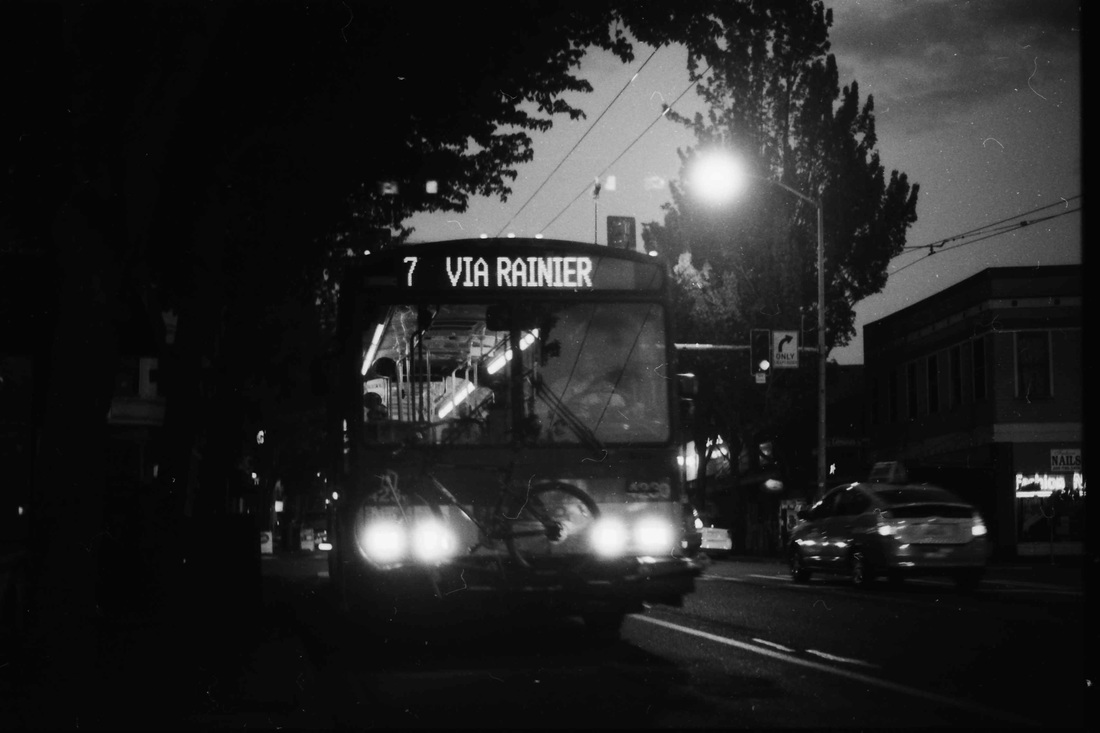
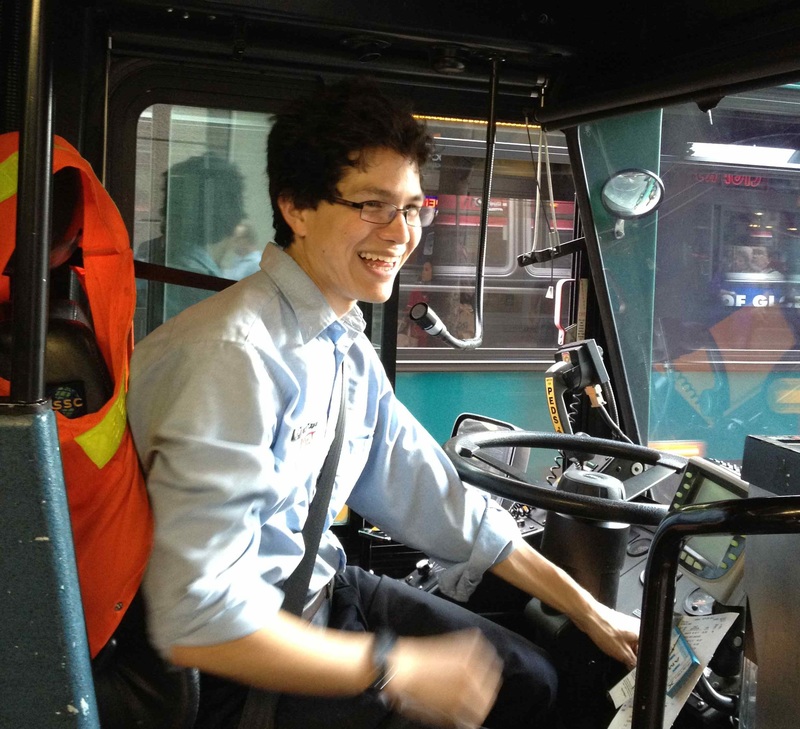
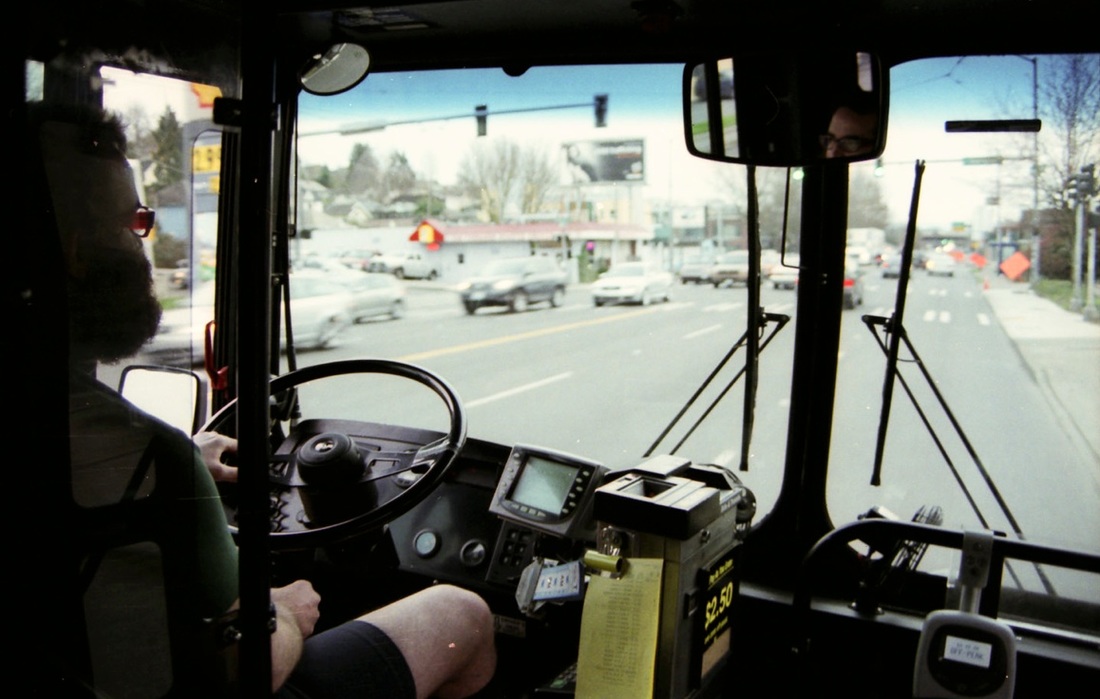
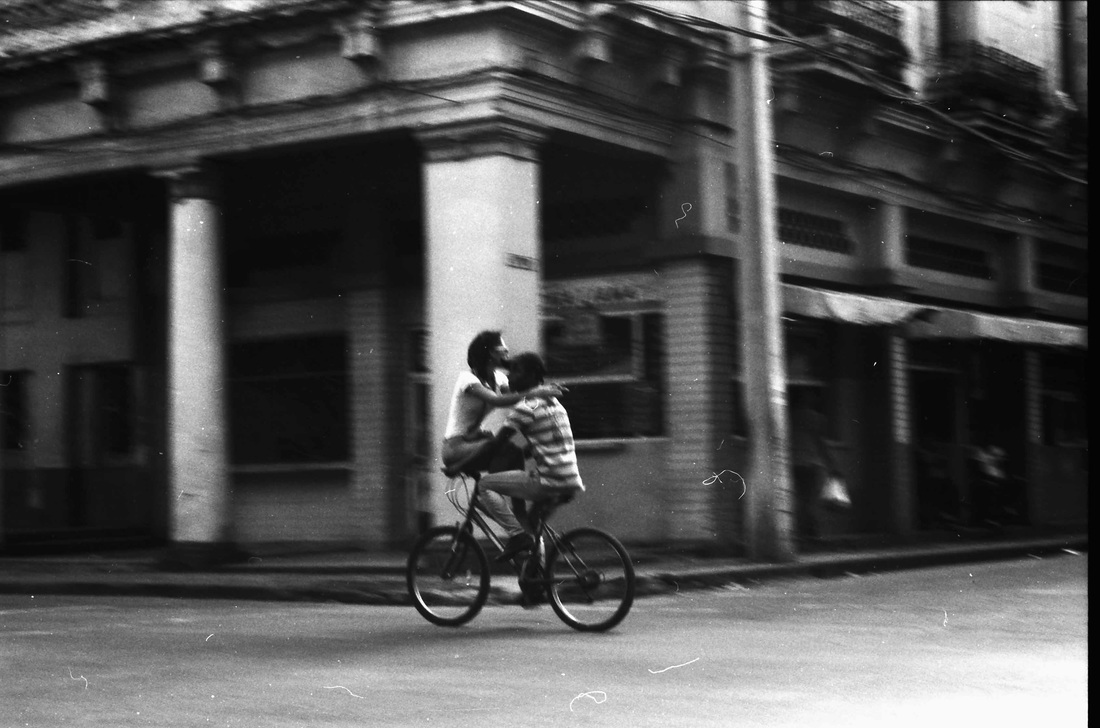
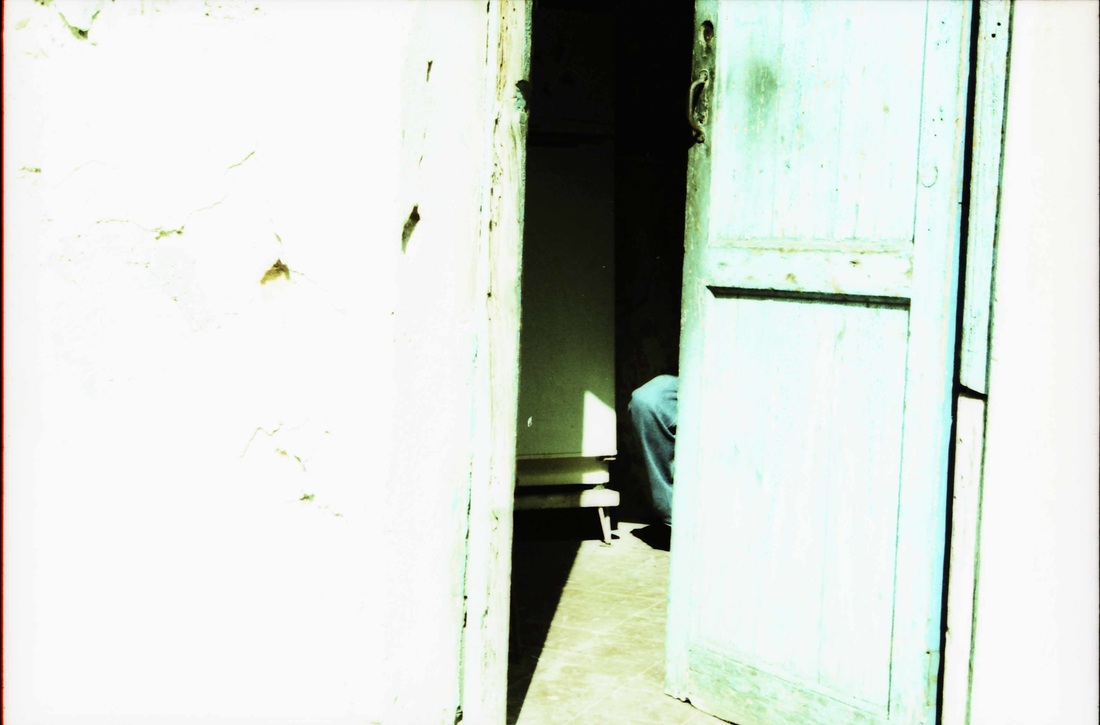

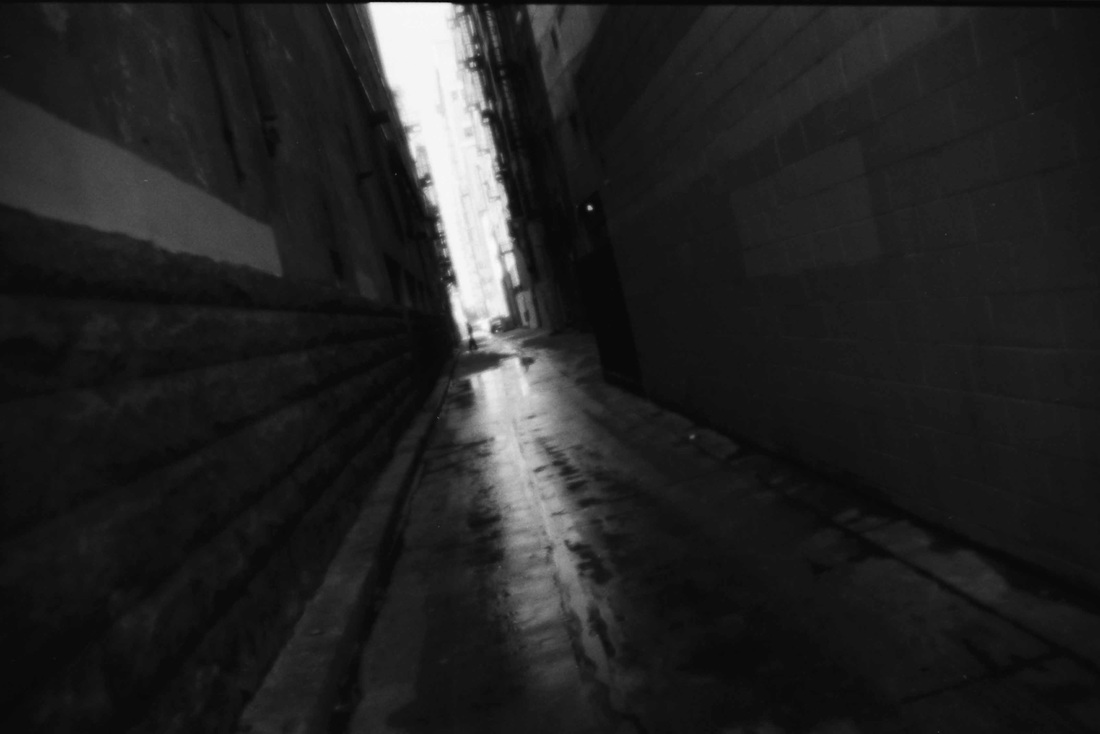
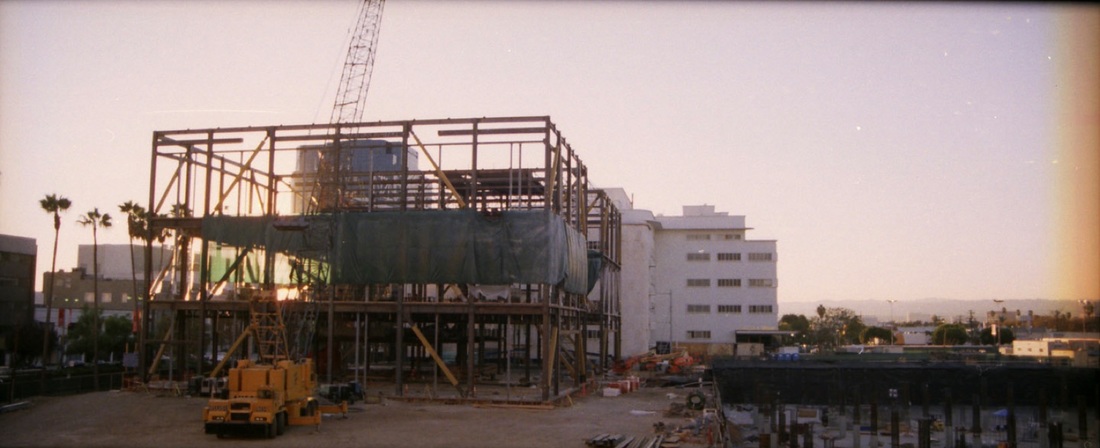
 RSS Feed
RSS Feed
